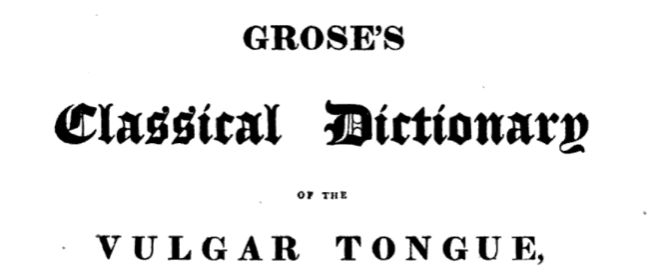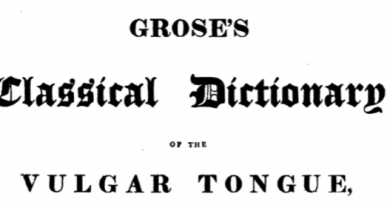Dictionary of the Vulgar Tongue – Day 178
The Dictionary of the Vulgar Tongue was first published at the end of the eighteenth century, and given that the current health crisis is giving too much time to read books, I thought I’d pick a daily word from it until I got bored….
Knight of the Post
This is defined by Grose as “a false evidence, one that is ready to swear any thing for hire”. So, effectively, someone who is willing to perjure themselves for money, which isn’t an ideal state of affairs for the judicial system. The phrase dates back to the late sixteenth century, although had fallen out of usage by the middle of the nineteenth century. In England and Wales, perjury only became an offence in common law in 1613, following a series of rather unfortunate cases.
Back in the Tudor and Stuart periods, and indeed later, it was possible to find people around the Inns of Court and Westminster Hall who were willing to lie and produce false documents for a suitable fee. The origins of the term are unknown, but it’s thought it likely relates to where the individual would stand, by a certain post where legal announcements were placed, waiting for their next commission.




